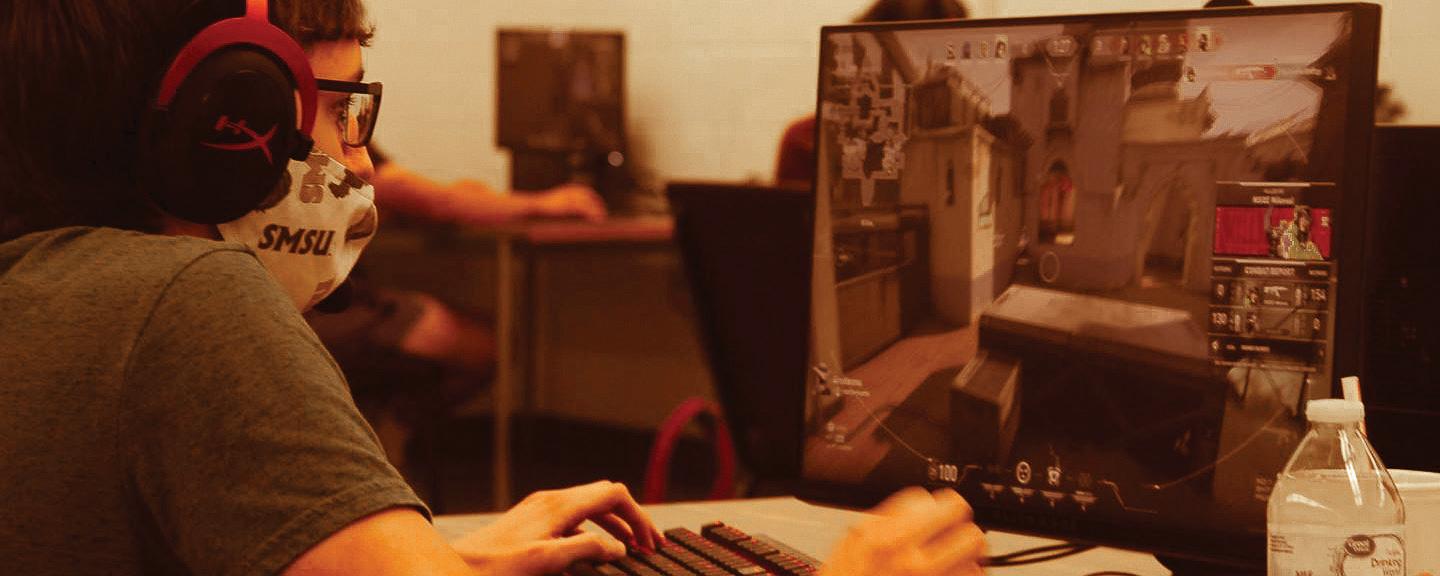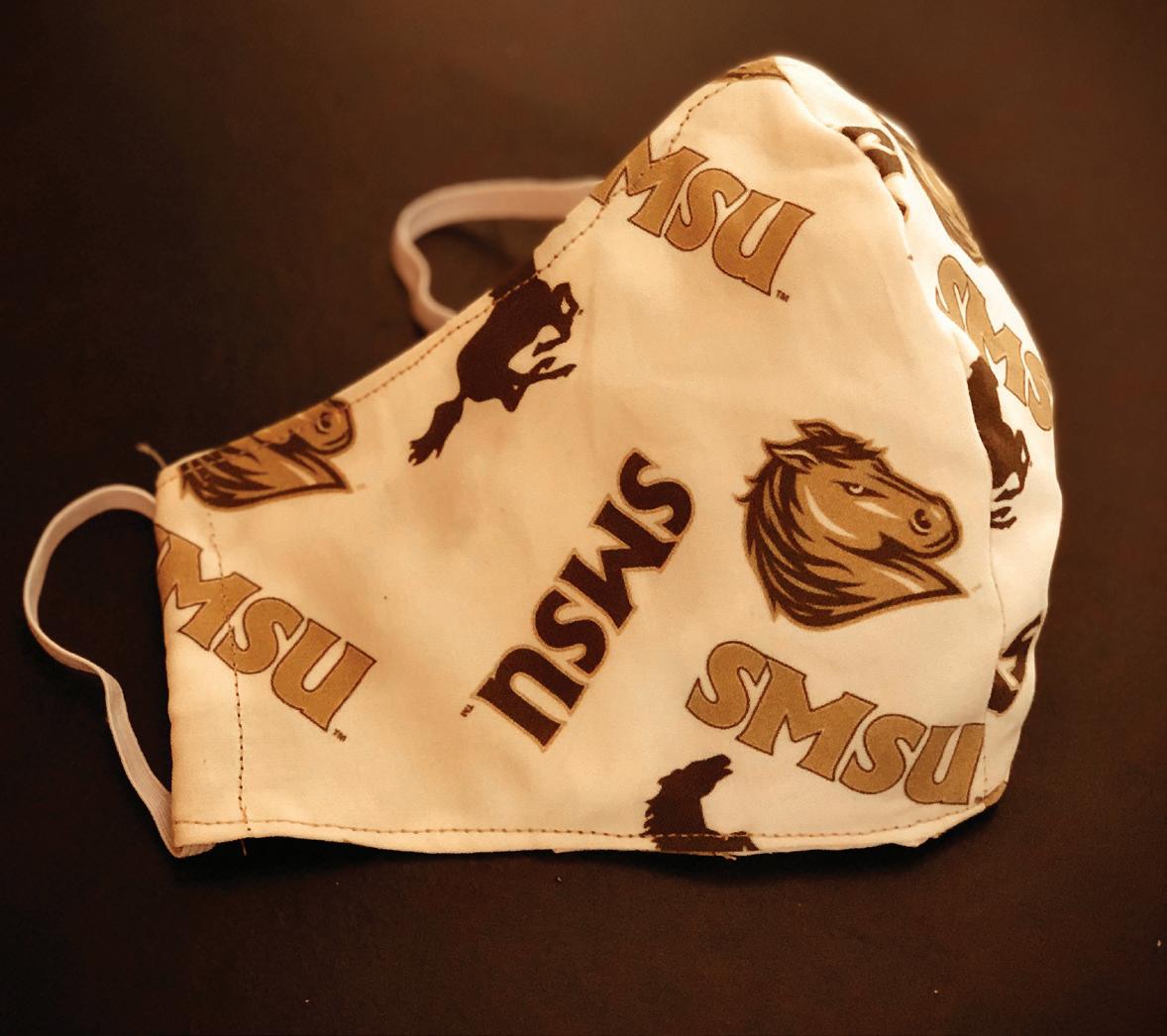[ around campus ]
Center For Innovation and Entrepreneurship Launched A new initiative — the Center for Innovation and Entrepreneurship — has been established at Southwest Minnesota State University. The Center will be housed within the newlyformed Department of Business Innovation & Strategy and will give students real-world Dr. George Taylor experiences that will complement their classroom work. The Center for Innovation and Entrepreneurship will emphasize experiential learning and will collaborate with the campus-housed Small Business Development Center (SBDC) and the Southwest Marketing Advisory Center (SMAC). “The Southwest Marketing Advisory Center is student run, where students do market research for real companies,” said Professor of Accounting and Department Chair Dr. Will Thomas. “The SBDC works with clients to assist them in starting their own businesses.” Assistant Professor of Management Dr. George Taylor, a successful entrepreneur in his first year at SMSU, will coordinate the services offered at the Center. “Someone who wants to start their own business is going to have questions about regulations, registering with the state,
Promising Numbers SMSU Enrollment Increases in Spite of COVID-19 Pandemic
SMSU welcomed 349 new first-year students to campus in Fall Semester 2020, an increase of 17.5 percent. It is the largest incoming class since 2016. Overall enrollment also increased slightly with the university serving 2,431 degree-seeking students, according to 10-day statistics. “These numbers are very positive and a tribute to the hard work and commitment of our faculty and staff, led by our Office of Admission,” said SMSU President Kumara Jayasuriya. “A number of new initiatives including our Regional Scholars Program and Mustang Pathway are providing new opportunities for students this fall.” SMSU is one of the few four-year institutions to show an overall enrollment increase this fall as COVID-19 has impacted enrollments across the state. The first-year student cohort is also one of the most diverse in history with 32 percent of the students representing students of color, an increase of 11 percent over last year. An increase in student retention also contributed to the overall growth in enrollment. In his State of the University address, President Jayasuriya said that it’s a key goal to steadily increase new enrollment while also focusing on efforts to continue increasing the retention rate.
2 | FOCUS
licensing, etc. We will work with the SBDC and will be able to offer start-up advice and the tools to support those who wish to go out on their own,” said Taylor. “The aim is to promote entrepreneurship while also making contributions to the economic viability of Southwest Minnesota,” said Dr. Will Thomas Taylor. SMSU now offers a minor, and a certificate, in entrepreneurship. “That is a focus area within the Center as well as other discipline degree areas,” said Taylor. “The Center’s short-term focus is experiential learning, outreach and the expansion of curricular and co-curricular entrepreneurship programming. In the long-term, its mission is to enhance the economic viability of the 18-county area.” Recently, the two business administration departments within SMSU were combined to form the Department of Business Innovation & Strategy. The two that were combined included Management and Marketing, and Accounting, Finance and Legal Studies. “We really see this as a benefit for the students because this adds flexibility. The objective is to develop a more entrepreneurial and critical thinking mindset among our students,” said Thomas.
Data Science and Cybersecurity Programs Added A pair of new high-demand programs will be offered at SMSU in Fall 2021. Data Science will be offered as a major, and Cybersecurity will be offered as a certificate. “Data Science is a field where massively huge amounts of data are analyzed to answer questions relevant to just about any discipline or industry,” explained Dr. Dan Kaiser, Professor of Computer Science. “The discipline itself involves computational skills, a lot of mathematical skills and both verbal and visual communication skills,” he continued. Kaiser said the new major is “a third math, a third computer science and third specifically data science.” Kaiser said a data scientist “determines a question that needs answering. They would ID data sources that would contain the data necessary to analyze that question. It would involve doing the necessary programming to scrape the data from those websites.” “There are data scientists in any field you can think of, from medicine to social sciences to food science, culinology, biological sciences to business and marketing. Every field uses data and people with those skills are in demand. The average base salary is $107,000,” said Kaiser. A graduate certificate in cybersecurity will be offered in fall semester 2021 and “is another high-demand field,” said Kaiser. “There are a couple of million jobs available.” Kaiser said it’s his hope the cybersecurity certificate “will attract people who are already working in the IT field. They could want a change of careers, or be working for a company that wants them to develop cybersecurity skills.” Cybersecurity has many applications in today’s technology-driven world, said Kaiser. “With these massive amounts of data, how do you secure all of that? How do you make databases safe, transactions safe? What do you do if there is a breach? It involves policies and procedures of law as well as making systems, software and data communications safe.” The program will be delivered online, he said. The certificate consists of four courses. There is a possibility, said Kaiser, that a master’s in cybersecurity will be offered starting in Fall semester 2021. Anyone with an undergraduate degree is eligible for the certificate, he said, “but you need to know how to program, and you need to be competent in computer skills. We are targeting IT professions.” He feels the certificate program, and potentially a master’s program, “have the potential of attracting a large number of students.”







